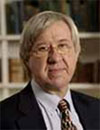Viktor Ambartsumian International Science Prize Steering Committee
Official Press Release, 18.07.2020, Yerevan, Armenia
Viktor Ambartsumian International Science Prize is one of the important awards in Astronomy/Astrophysics and related sciences. It is being awarded to outstanding scientists from any country and nationality having significant contribution in science. The Prize is being awarded since 2010 once every two years. In 2010-2016 the Prize totaled USD 500,000, which was set by the Republic of Armenia (RA) Government. Since 2018 the Prize totals USD 300, 000. The Prize includes laureate honorary diploma, medal with certifying document, USD 200,000 equivalent cash award and USD 100,000 equivalent for further development of Astronomy/Astrophysics as well as related fields of Physics and Mathematics in Armenia, for the next two years after the Prize award. This money should be used as follows: USD 50,000 for research projects, USD 25,000 for Armenian scientists’ foreign fellowships, USD 15,000 for organizing scientific meetings and schools in Armenia, USD 7,200 for scholoarships of M.Sc. students studying at State universities, and USD 2,800 for astronomy outreach projects.
The International Steering Committee (ISC) consists of 9 outstanding scientists: Prof. Radik Martirosyan (President of the Armenian National Academy of Sciences, Armenia, ISC Chair), Prof. Xavier Barcons (Germany), Prof. Jocelyn Bell Burnell (UK), Prof. Anatol Cherepashchuk (Russia), Prof. Michel Mayor (Switzerland), Prof. Vahe Petrosian (USA), Prof. Brian Schmidt (Australia), Prof. Joseph Silk (UK) and Prof. Ewine Van Dishoeck.
April 18 was the deadline for nominations, and ISC received nominations from national academies of sciences, universities, and observatories for 8 outstanding scientists and groups from different countries. After a thorough study of the nominated works, as well as independent referees’ reports, the Committee had several discussions and finally it was decided to award the half of the Prize to Prof. Alexander Szalay, and the other half to share between Prof. Isabelle Baraffe and Prof. Adam Burrows.
 |
|
Prof. Alexander Szalay (Johns Hopkins University, Baltimore, USA), nominated by Prof. Adam Riess, Nobel Prize Winner, “for his pioneering work on demonstrating that the Dark Matter in the Universe might be a neutral, weakly interacting particle and for his contributions to data-driven, statistical cosmology”. |
 |
|
Prof. Isabelle Baraffe (University of Exeter, UK, and CRAL/ENS de Lyon, CNRS, France), nominated by University of Exeter, “for her fundamental contributions to the field of low mass stars, brown dwarfs and exoplanets, and for innovative ideas in the domains of asteroseismology and compact binaries”. |
 |
|
Prof. Adam Burrows (Department of Astrophysical Sciences, Princeton University, USA), nominated by Princeton University, “for his seminal and pioneering contributions to the theories of brown dwarfs and exoplanets and for his leadership role in educating a generation of scientists at the frontiers of brown dwarf and exoplanet research”. |
The previous winners were:
2010 – Michel Mayor (Obs. de Genève, Switzerland), Garik Israelian (Instituto de Astrofisica de Canarias, Spain) and Nuno Santos (Centro de Astrofísica da Universidade do Porto, Portugal) for their important contribution in the study of relation between planetary systems and their host stars.
2012 – Jaan Einasto (Tartu Observatory, Estonia) for his fundamental contributions to the discovery of dark matter and the cosmic web and Igor Novikov (Astro-Space Center, P.N. Lebedev Physics Institute, Russia) for his pioneering formulation how to confirm observationally that our Universe started as a hot one, and for proposing the method for determination of quasar masses.
2014 – Felix Aharonian (Ireland and Germany) for outstanding contributions to the field of high energy astrophysics and to the physics of cosmic accelerators, and leading role in the development of the stereoscopic system of Cherenkov telescopes, and jointly Igor Karachentsev (Russia) and Brent Tully (USA) for their fundamental contribution in the cosmology of the Local Universe.
2016 – The Prize was not awarded.
2018 – Edward van den Heuvel (Anton Pannekoek Institute for Astronomy, University of Amsterdam, Netherlands), Alexander V. Tutukov (Institute of Astronomy of the Russian Academy of Sciences, Russia) and Lev R. Yungelson (Institute of Astronomy of the Russian Academy of Sciences, Russia) for their pioneering studies of massive binary stars, in particular the formation of relativistic binaries and gravitational-wave sources.
The official Award Ceremony will take place on September 18, 2020.
|



